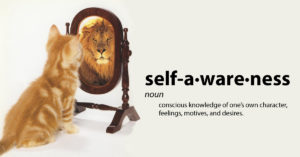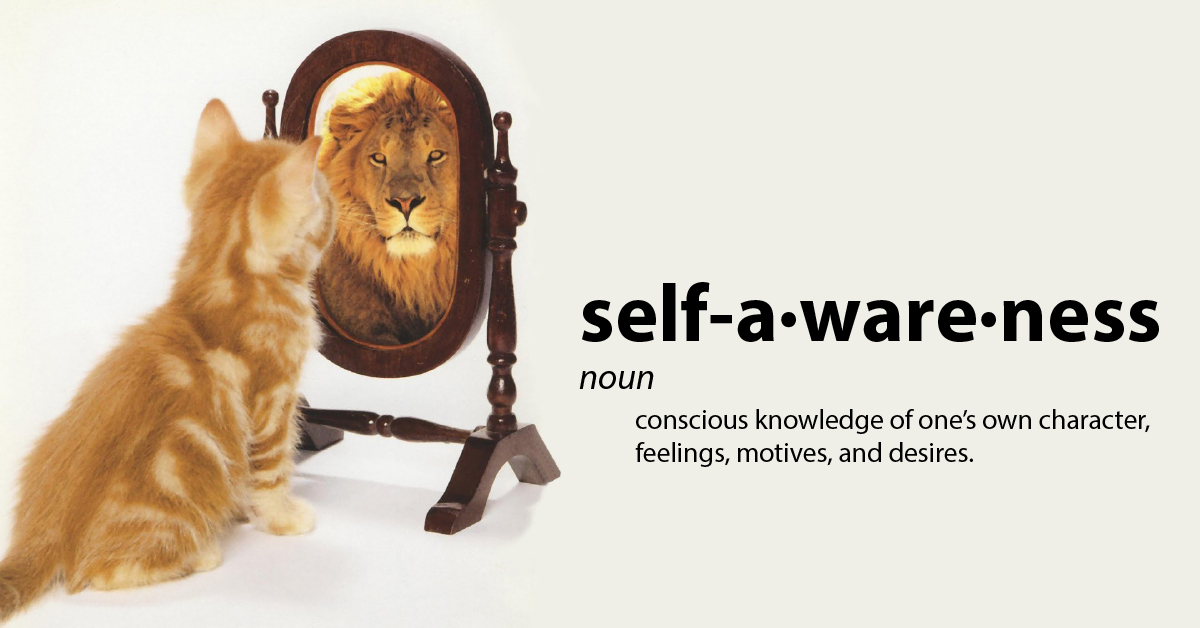
Last week, we shared with you Daniel Goleman’s list of the 4 traits his research has shown are essential to emotional intelligence. This week, we are going to talk with you about operationalizing the first of these traits so that you can increase your emotional intelligence, and thereby increase your effectiveness at work and at home.
People read Goleman’s 4 traits and think they are great, but then get stuck trying to figure out the answer to the question, “How do I increase my emotional intelligence?” That’s where we come in—we help people get past the theory and to a place where they are actually putting new behaviors into play.
Goleman’s first trait is self-awareness and he describes it as:
- Self-Awareness
- Realistic self-confidence: You understand your own strengths and limitations; you operate from competence and know when to rely on someone else on the team.
- Emotional insight: You understand your feelings. Being aware of what makes you angry, for instance, can help you manage that anger.
Realistic self-confidence: In order to increase your level of self-awareness, it is imperative that you get real feedback on how you show up—which means that you don’t rely on how you think or hope you show up. You rely instead on real data from others.
As with self-awareness, in order to own your strengths and limitations, you need a realistic understanding of how you are experienced by others. Research shows that women typically underestimate their competence and men overestimate their competence. In each case, it creates a problem with effectiveness and success. Women may pass on opportunities because they are unsure of their ability to succeed and men may jump at opportunities that are not suited to their skillset.
We recommend that each of our clients list the 5 skills that they both enjoy doing and would be given an A for their execution of the skills. These are your core skills. Now, take this list to 3 people you know and trust and ask them if they also see these as your core strengths. Yes or No.
- If YES: Lead with these skills and expand on them whenever you can. Seek out opportunities to use your core skills and you will increase both your confidence and your expertise.
- If NO: Find out what skills they think you possess that you haven’t described and think about whether they are correct. If they reflect back to you a skill that you don’t like doing, then you need to look for opportunities to get known for the skills that you enjoy doing more. If the people you ask don’t recognize you as having any of the skills you believe you possess, you probably need some help reassessing your skills, as you are probably not getting the kind of work or traction that you would like.
Emotional insight: In order to increase your ability to understand your feelings we suggest that you understand your trigger points. Where are the places that you get afraid, angry, or reactive? Once you understand those points, practice the Fundamental Pause to get yourself out of a state of reactivity and back to a responsive state. An impressive number of our clients can tell us what they “shouldn’t” do (so there is emotional insight) but few have clear ideas how to interrupt the “shouldn’t” behaviors. Identifying your triggers and then finding ways to soothe yourself when you are triggered is one of the best things that you can do to increase your effectiveness and claim your power.
This week, we encourage you to take a few moments to identify your 5 core skills and share them with your trusted allies. In addition, we would encourage you identify the 3 things that are likely to trigger a strong reaction from you, and then using the Fundamental Pause determine what a better, more empowered response would look like.


